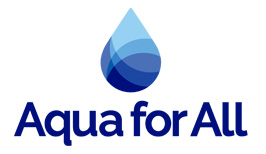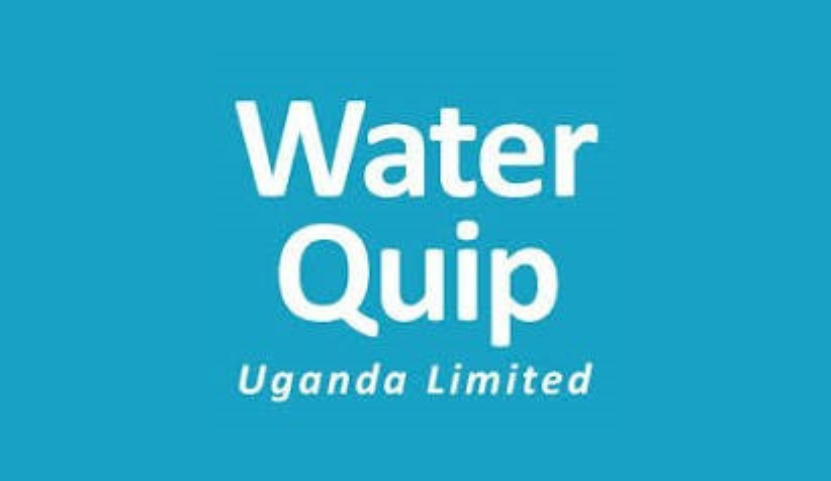WaterQuip
Drinking water for schools in Uganda
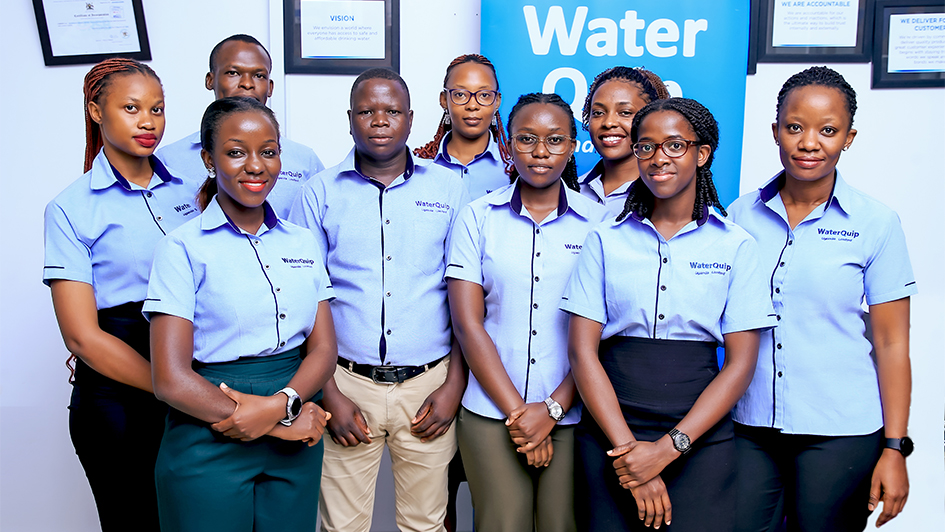
In Uganda, many schools do not have access to clean drinking water and therefore resort to boiling methods using wood and coal. In the search for evidence-based solutions, Siemens Stiftung commissioned a study to describe the impact of measures to provide clean drinking water at 30 schools in Uganda. The study by WaterQuip takes into account both ecological and social factors and is paving the way for future sustainable development projects in the education sector that aim to combine environmental protection with the improvement of health and educational opportunities.
ProjectGoal of the study
The WaterQuip study examines the diverse effects of providing clean drinking water to schools and institutions in Uganda. The main focus is on three aspects:
- Quantifying the CO2 emissions saved through the introduction of water filters.
- Analyzing the links between improved drinking water consumption and children’s health, absenteeism and academic performance.
- Examination of a financing model in which CO2 certificates could cover the costs of installing the water filters.
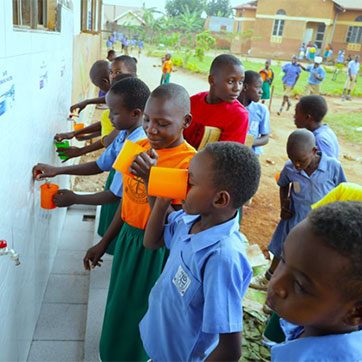
Study on UV water purification in schools: innovative financing models and their impact
The study shows that UV water purification in schools not only promotes the health and education of students, but also reduces CO2 emissions. The study provides important evidence to further develop a financing model based on emissions trading.
Method
In order to investigate the effectiveness of UV water filters in schools, a randomized controlled trial (RCT) was conducted with 60 educational institutions. Thirty schools were equipped with UV water filters and compared with 30 schools without filters. The schools were selected according to socio-economic criteria in order to ensure a balanced distribution of rural and urban schools as well as boarding and day schools. Qualitative and quantitative data was collected regularly over the course of a school year in order to analyze the effects of the UV water filters on the health and everyday school life of the pupils. This structured approach is intended to provide valuable insights into the benefits of UV water filters in educational institutions.
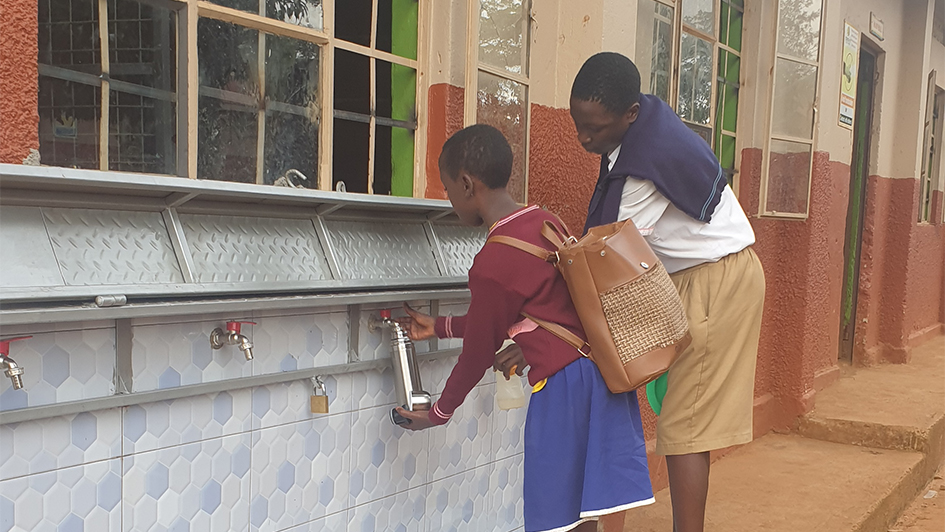
Background
In Uganda, around 9 million children and young people of school age have no access to clean drinking water. This leads to high rates of illness and absence from school, which affects students’ academic success and health. Clean drinking water is essential for success in school and overall health, so measures must be taken to ensure that all students have access to it.
ImpactSustainable Development Goals (SDGs)
The study supports the United Nations Sustainable Development Goals (SDGs):
- SDG 3 Good Health and Well-being: Providing safe drinking water improves people’s health.
- SDG 4 Quality education: Clean drinking water enables more regular school attendance and improves school performance.
- SDG 6 Clean water and sanitation: The project promotes access to clean drinking water and improves sanitary conditions in schools.
- SDG 13 Climate action: The reduction of firewood consumption and the use of renewable energy sources contribute to combating climate change.
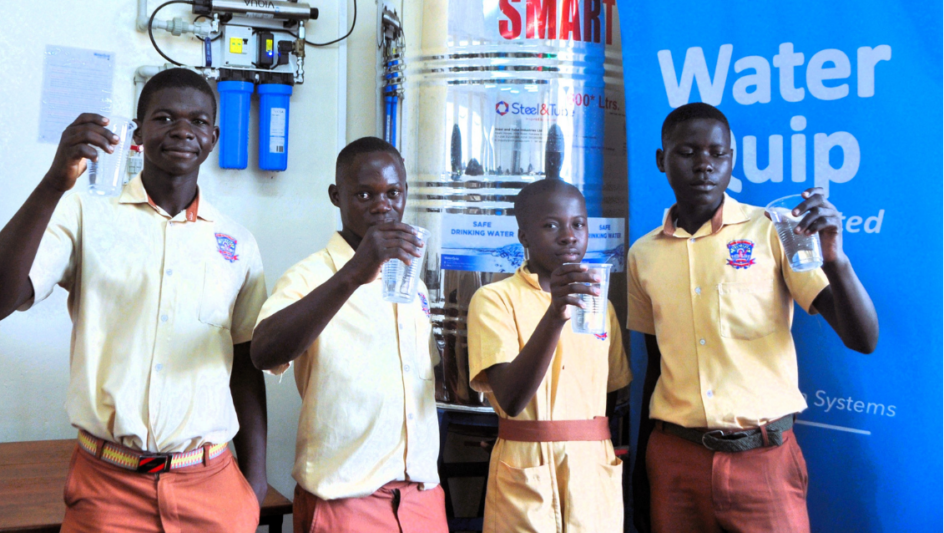
Partners
WaterQuip
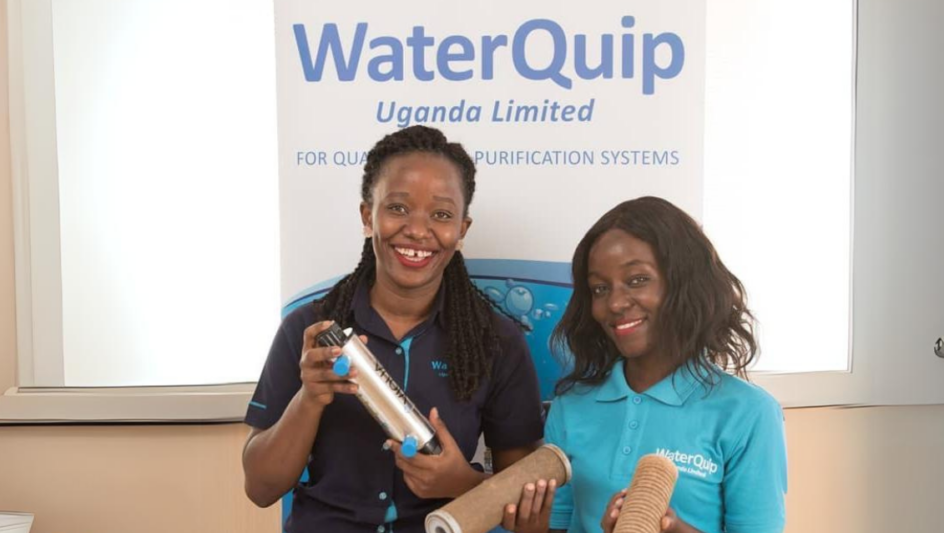
Contact
Would you like to work with us? Or do you have any questions?
Project Manager
Christine Meinhardt
christine.meinhardt@siemens-stiftung.org



